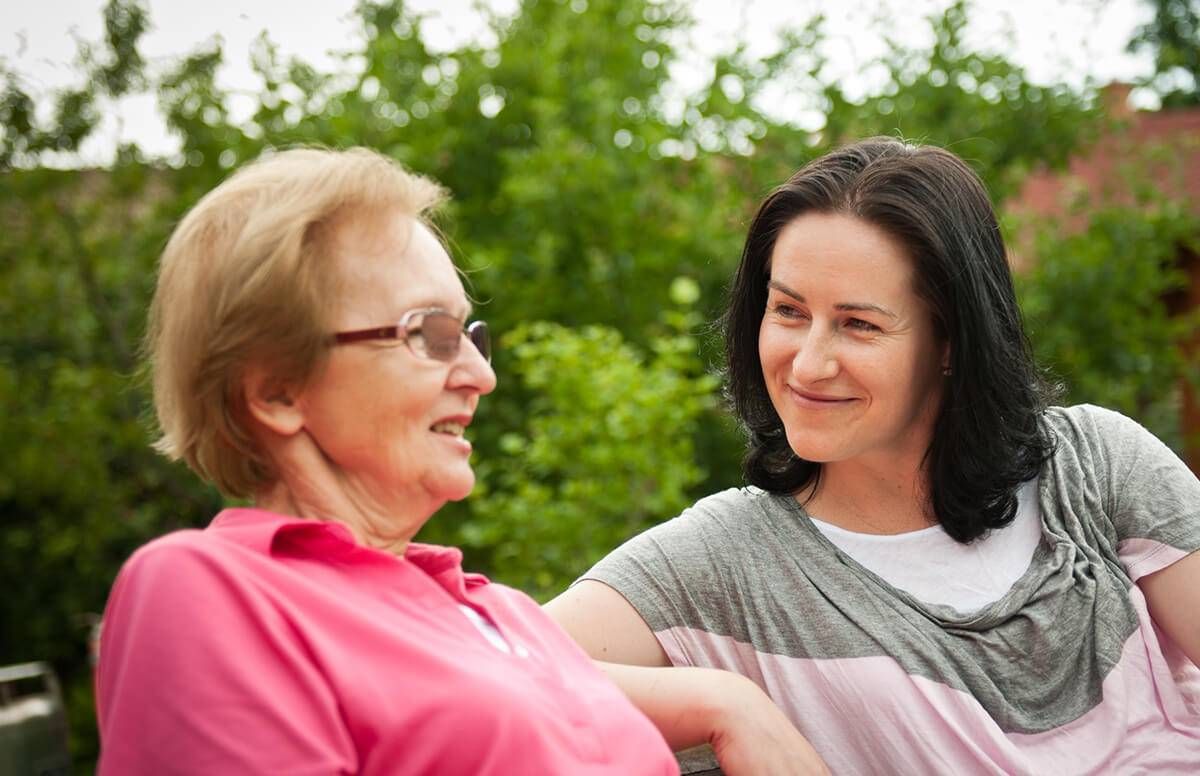Improve Your Life By Listening Better
When you're all ears, you can deepen relationships at home, at work and beyond
Have you ever shared exciting news with your partner and felt like you weren’t really being heard? There was probably some head nodding, but he or she seemed distracted — maybe thinking about something from earlier, deciding what to eat for lunch or even subtly checking e-mail.

“Most of us are well aware when someone really isn’t listening to us — it’s annoying, and it can even be hurtful if we’re talking about something important,” said Michael P. Nichols, author of The Lost Art of Listening.
Most people say their spouses, parents, children, friends and colleagues don’t really listen to them, which means that we’re probably all guilty of zoning out some of the time. But we’re missing opportunities to deepen our connections with others and gain insights into their thought processes.
“For listening in particular, people tend to overestimate their abilities with respect to how other people see us and how we objectively act,” said Graham D. Bodie, visiting professor of integrated marketing communications at the University of Mississippi.
Fortunately, you can become a better listener. Focusing more effectively on what people say can have far-reaching effects on your relationships. Try these techniques:
Zero In On The Conversation
A good listener focuses on the conversation, especially if a partner, friend or colleague seems elated, worried or upset and needs to talk.
“Good listening is not complicated — it’s difficult, but not complicated,” Nichols said. “Suspend your own agenda to give them the kind of sustained attention and acknowledgment of what they are feeling and saying. That makes them feel understood and accepted.”
Ask for More
Good listeners do more than sit silently; they ask follow-up questions that keep the conversation focused.
“Invite them to elaborate,” Nichols said. “The best kind of response is punctuated with a question mark: ‘Is this what you’re trying to say?’ [Not] ‘I know what you’re saying,’ punctuated with a period. That’s closing off the conversation, when the person in the throes of feelings may want to say a little more.”
Demonstrate That You’re Listening
When there’s a lull, how you respond lets someone know whether you’re paying attention. A generic response won’t peg you as a good listener the way that a specific reaction will.
“The ‘uh-huhs,’ ‘yeahs’ and ‘rights’ — you can do that even when you’re distracted,” Bodie said. “If someone tells you something surprising, you look surprised or you gasp. It’s uniquely tied to the conversation — giving support, asking questions, giving a hug, whatever the case might be.”
Set Aside Multitasking
People can listen effectively at a rate of 450 words per minute, but we talk at about 150 words per minute. That’s why you can daydream while hearing about your partner’s lousy day and still process what was said... but you won’t be an effective listener.
“99 percent of people cannot do two cognitively demanding tasks sat the same time; they switch from one task to another,” Bodie said. “People who are trying to do two things at once are approximately 40 percent less efficient at completing the primary task than if they had done the task separately.”
Suspend Your Need to Share
Most people who need someone to listen just want to be heard. They don’t want advice. They don’t want to hear that the same thing happened to you once. Save your comments for another time and you’ll stand out as a better listener.
“The story isn’t being told for your edification; the story is being told so the person can feel listened to,” Bodie said. “The focus should be on the person speaking, not you.”
Notice Your Partner
The longer couples are together, the more likely they are to tune each other out, thinking they know what the other will say. You don’t need to be laser-focused for every bit of small talk, but pay attention when something seems significant.
“It’s worth making a special effort to listen well when your partner is feeling something that may be important to them,” Nichols said.
Don’t Finish Sentences
Many longtime couples don’t listen carefully to one another, especially when they think that they know every story and opinion. But stopping your partner mid-story or finishing his or her sentence can make you seem emotionally unavailable.
“Let’s say, for the sake of argument, that you do know what the other person is going to say,” Bodie said. “So what? Sometimes, listening isn’t about you; it’s about the other person. The reason is for them to feel heard. If you shut the conversation down to say, ‘You said that last week,’ they don’t get the benefit of being heard. And if it happens over and over again, you become a person that doesn’t listen to them, and the relationship suffers.”
Know When to Postpone
Occasionally, you may not be in the right frame of mind to listen well. Let your friend or partner know that you’ll be more focused later.
“There are times in a relationship when you have to be honest,” Bodie said. “Say, ‘I don’t have the bandwidth right now. I want to have this conversation, but I’m having trouble being attentive. It has nothing to do with you. Can we please do this another time?’”
Address Hearing Loss
Sometimes a partner, friend or colleague stops being a good listener due to age-related hearing loss. Becoming hard-of-hearing can be socially isolating, because people who can’t hear well can’t listen well and they may feel left out. Some people may not realize that their hearing is fading or they may be turned off by the idea of hearing aids. Encourage your partner to seek treatment so he or she can continue to listen effectively.
“It’s more prevalent than we think it is,” Bodie said. “Being aware that it’s possible, and not adding to the stigmatization of it in your own relationship, is good advice.”

